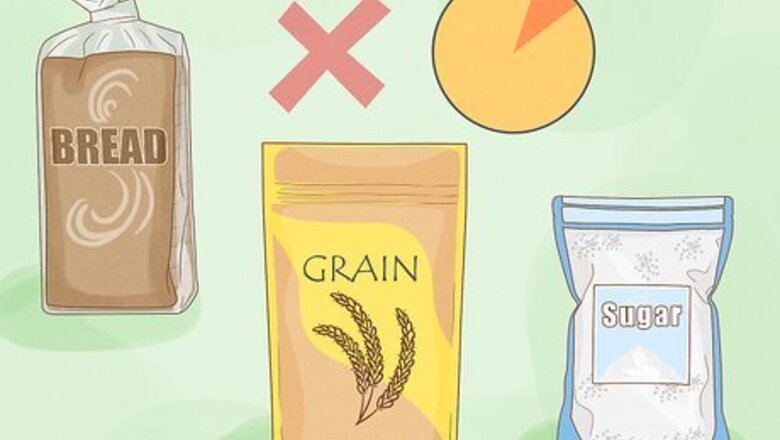
views
Achieving Clean Ketosis
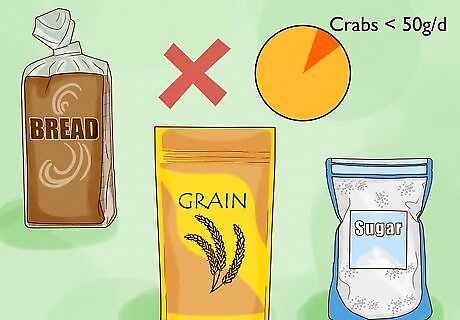
Restrict your daily carbs to less than 50 g per day. The most important part of following a keto diet is restricting the amount of carbs you eat every day. Eliminate all starches, breads, grains, and sugars from your diet. Carbohydrates should make up no more than 5-10% of your daily calories, which amounts to 50 g or less. Once you start your diet, it usually takes the body 3-4 weeks to achieve a steady state of ketosis.
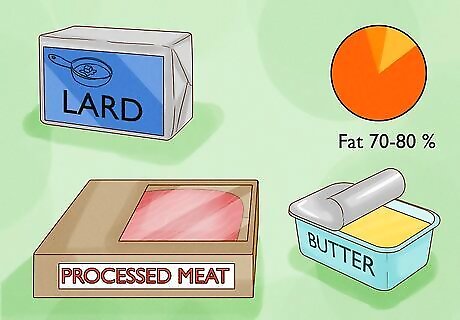
Make sure 70-80% of your daily calories come from fat. Since ketosis forces your body to use fat as its main energy source, eating enough fat every day is important. In clean keto, go with healthy sources of unsaturated fat and stay away from saturated fats in fatty cuts of meat, processed meats, lard, and butter. "Clean" fat options include nuts, seeds, avocados, plant oils, and oily fish.
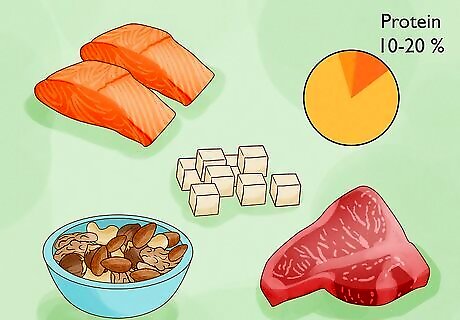
Get 10-20% of your daily calories from high-quality protein sources. Protein is important in keto, but keep in mind that keto is not a high protein/low carb diet like Atkins. Protein only makes up about 10-20% of your caloric intake. If you eat too much protein, your body will convert the excess into glucose and you won't be able to reach ketosis. Clean keto emphasizes healthy, grass-fed protein from organic poultry, dairy, meat, salmon, and eggs. Tofu, certain nuts and seeds are also approved. Ideally, animal protein is minimally processed and ethically sourced.
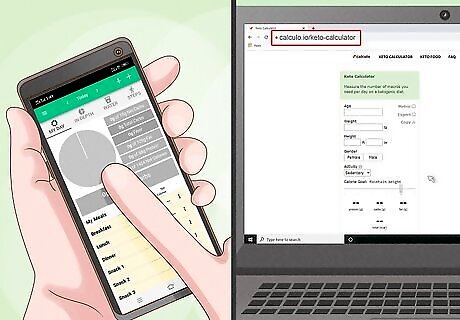
Use keto apps and online calculators to keep track of everything. The exact number of grams you need to eat in each food group depends on your weight, height, gender, and activity level. Use an online keto calculator to help you figure out exactly how many grams fat, carbs, and protein you can eat every day. Once you know how many grams you need, a keto app can make it easier for you to track everything. For example, to calculate your needs, try https://calculo.io/keto-calculator. Apps like Carb Manager are great for tracking what you eat.
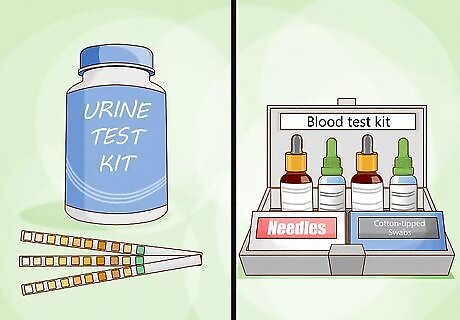
Use blood or urine test strips to figure out when you're in ketosis. Urine test strips are the cheaper option, but they tend to be less accurate than blood tests. Both test types are available online and at drug stores. The recommended range for ketosis is 1.5 to 3.0 mmol/l. To keep costs low, start with blood tests until you reach ketosis and experience what it feels like. After that, use urine strips occasionally to make sure you’re still on track.
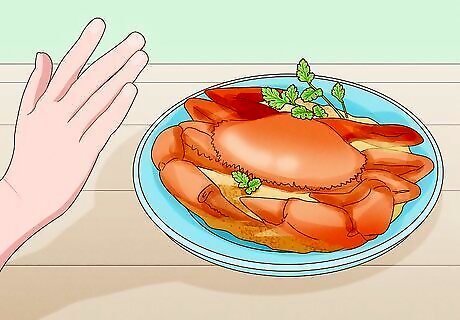
Avoid cheat meals to maintain ketosis the clean way. Unlike dirty keto, clean keto does not include cheat days or cheat meals. Consistency is really important and bouncing in and out of ketosis can be tough on your body. Keep in mind that the goal of clean keto is to maintain ketosis. It takes hard work to achieve ketosis! If you cheat and eat too many carbs, you essentially have to start all the way over to get yourself back into ketosis.
Choosing Clean Keto Foods
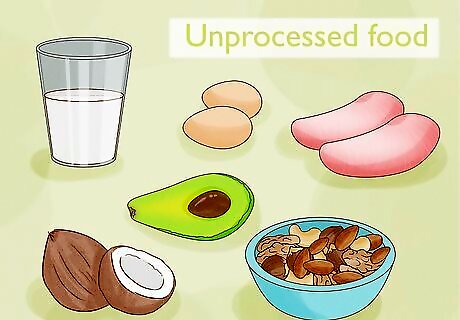
Prioritize whole, unprocessed foods in every meal on clean keto. The key to clean keto is eating whole, unprocessed foods that don’t contain artificial sweeteners, preservatives, hormones, or processed oils. Aim to incorporate organic fresh veggies and fruits, high quality proteins, and healthy fats in every meal and snack. Skip all prepackaged and processed foods even if they’re labeled as keto. Dirty keto allows these foods, but clean keto does not. At each meal, include a healthy fat, a protein, and some vegetables. If you eat a balanced diet, you'll be less likely to experience blood sugar fluctuations that can lead to sugar cravings.
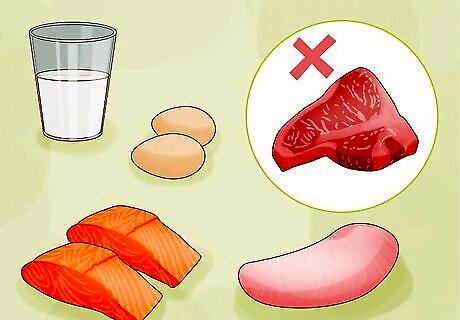
Eat "clean" proteins from organic and grass-fed sources. “Clean” animal proteins include organic poultry, dairy, meat, salmon, and eggs produced without hormones or antibiotics. Check out what local farmers have to offer! Animals should be grass-fed beef (not grain-fed) and free-range, if possible. Limit or avoid most red meat and processed meats.
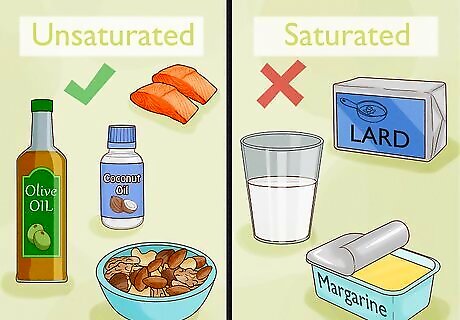
Consume plenty of unsaturated fats from healthy sources. Fat is an important part of the keto diet. Doing clean keto means prioritizing healthy unsaturated fats over saturated fat sources. Healthy sources of fat include olive oil, coconut oil, nuts, seeds, avocados, and oily fish like salmon. Avoid saturated fats like margarine, lard, and full-fat dairy.
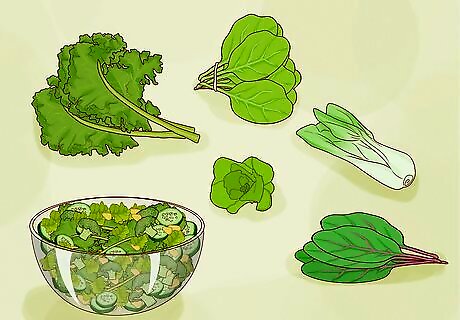
Incorporate plenty of low-carb, high-fiber veggies in your daily meals. High-fiber veggies are nutrient dense and contain very few carbs, so make them a staple in your keto diet. Leafy greens like kale, Swiss chard, collards, spinach, bok choy, and lettuces are great options. Other great veggie choices include: Cauliflower Broccoli Brussels sprouts Asparagus Try baking veggies in butter, sautéing them in coconut oil, or eating them with guacamole or tahini to up your fat intake.
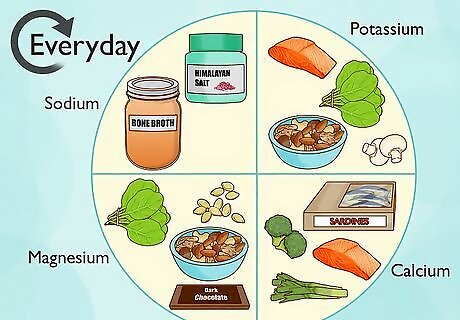
Eat foods to maintain balanced electrolyte levels every day. Clean and dirty keto both deplete your body of 4 important electrolytes: sodium, potassium, magnesium, and calcium. It's important to eat nutritious, low-carb foods that are high in electrolytes to to prevent dehydration, constipation, and flu-like symptoms. Sprinkle pink Himalayan salt on your food to replenish your sodium. You can also drink bone broth from high-quality animal sources. Salmon, nuts, avocados, leafy green veggies, and mushrooms are high in potassium. Eat calcium-dense foods like dark leafy greens, broccoli, salmon, and sardines. Restore magnesium by eating leafy greens, dark chocolate, pumpkin seeds, Swiss chard, and nuts. Supplements can help you restore electrolytes, but nutritious foods are better options.
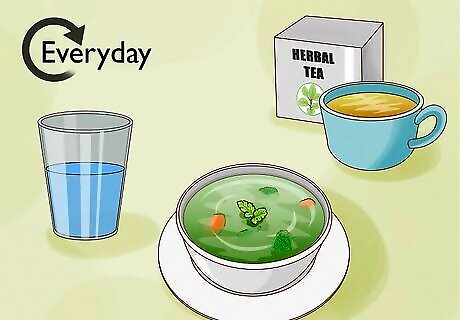
Drink plenty of "clean" fluids like water and herbal teas to stay hydrated. Keto can dehydrate you, so be sure to drink plenty of fluids every day. The best choices are water, herbal tea, and green vegetable juice. Avoid chai and coffee drinks made with coconut milk and sugar-free syrup unless you're doing dirty keto.



















Comments
0 comment